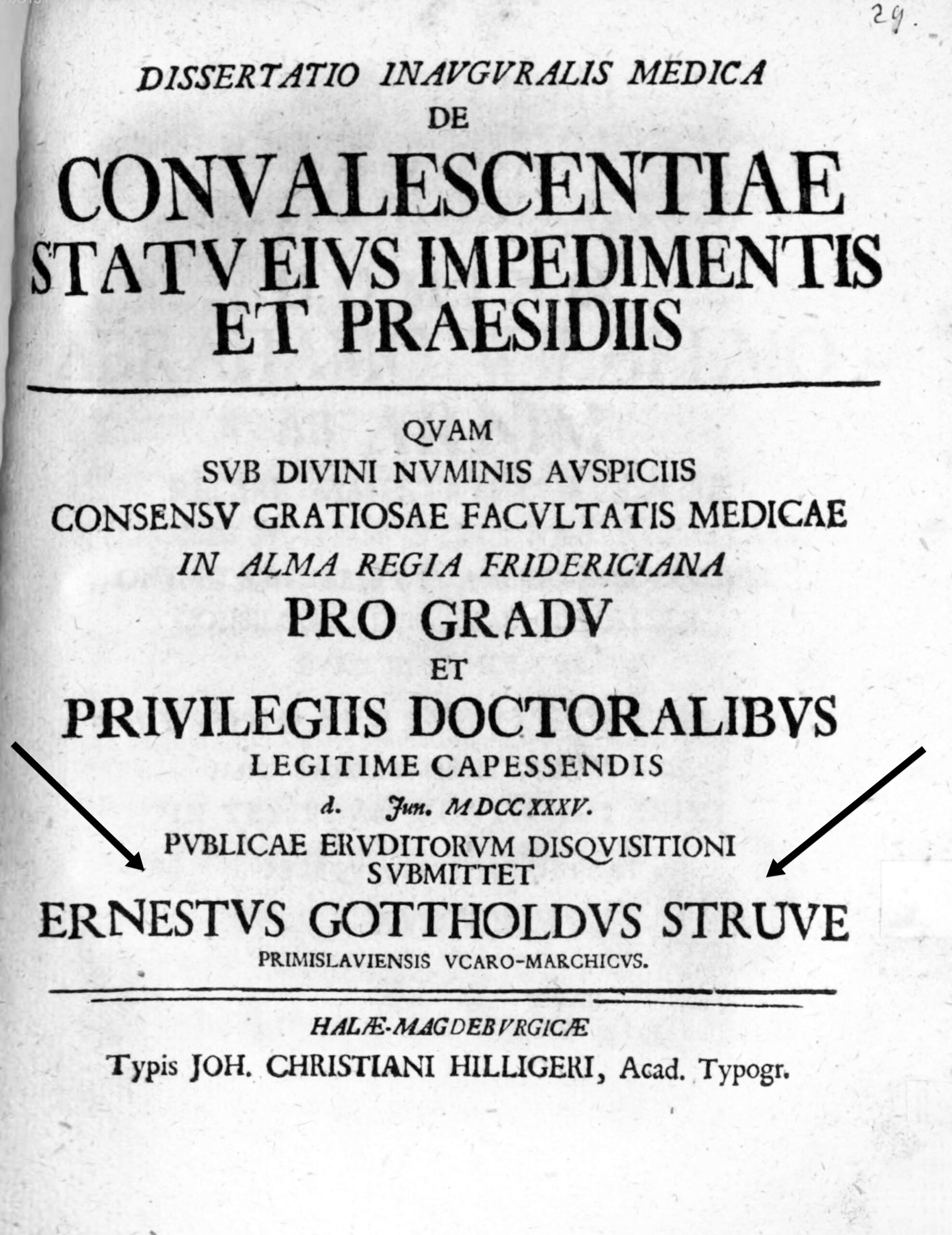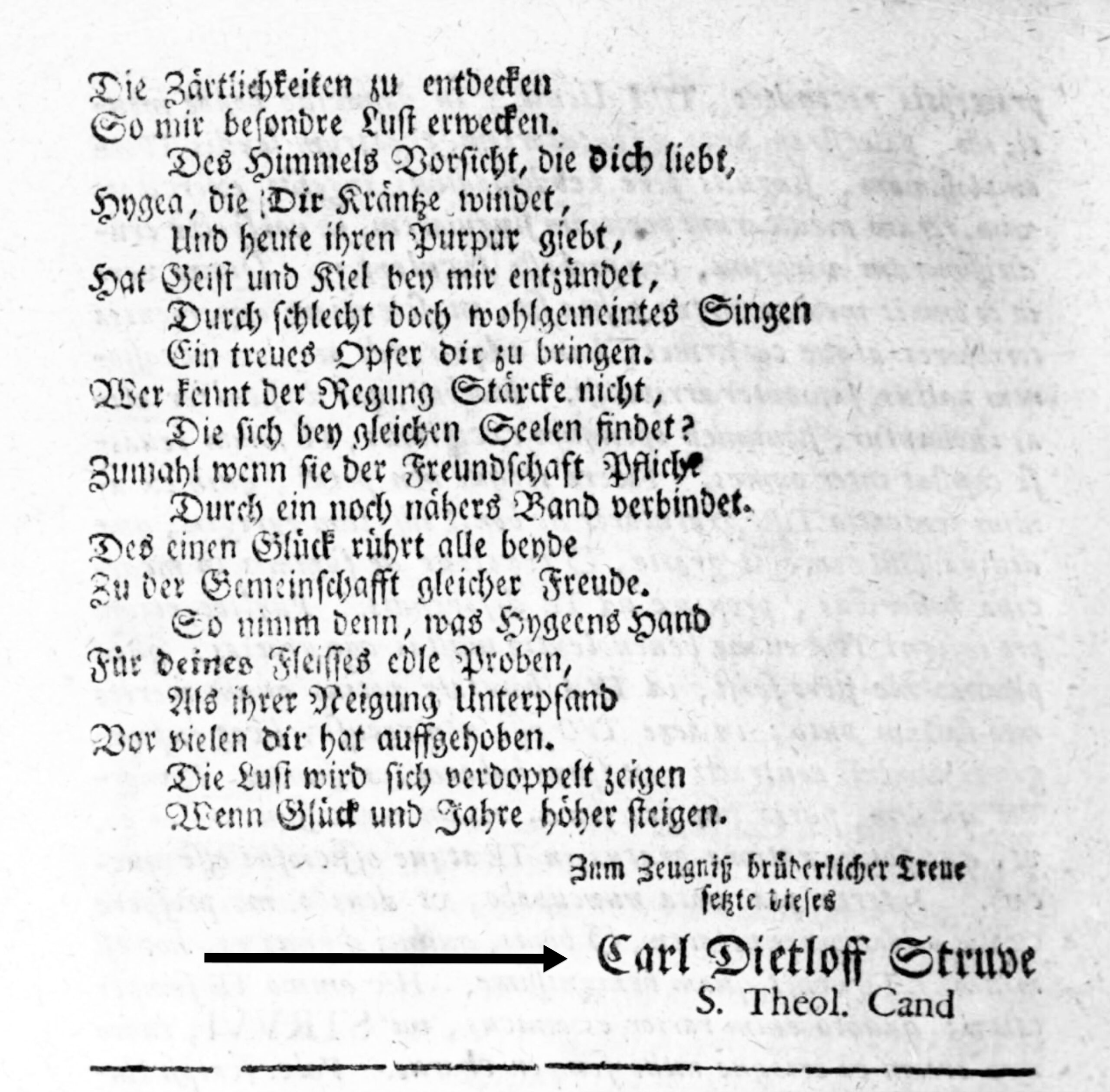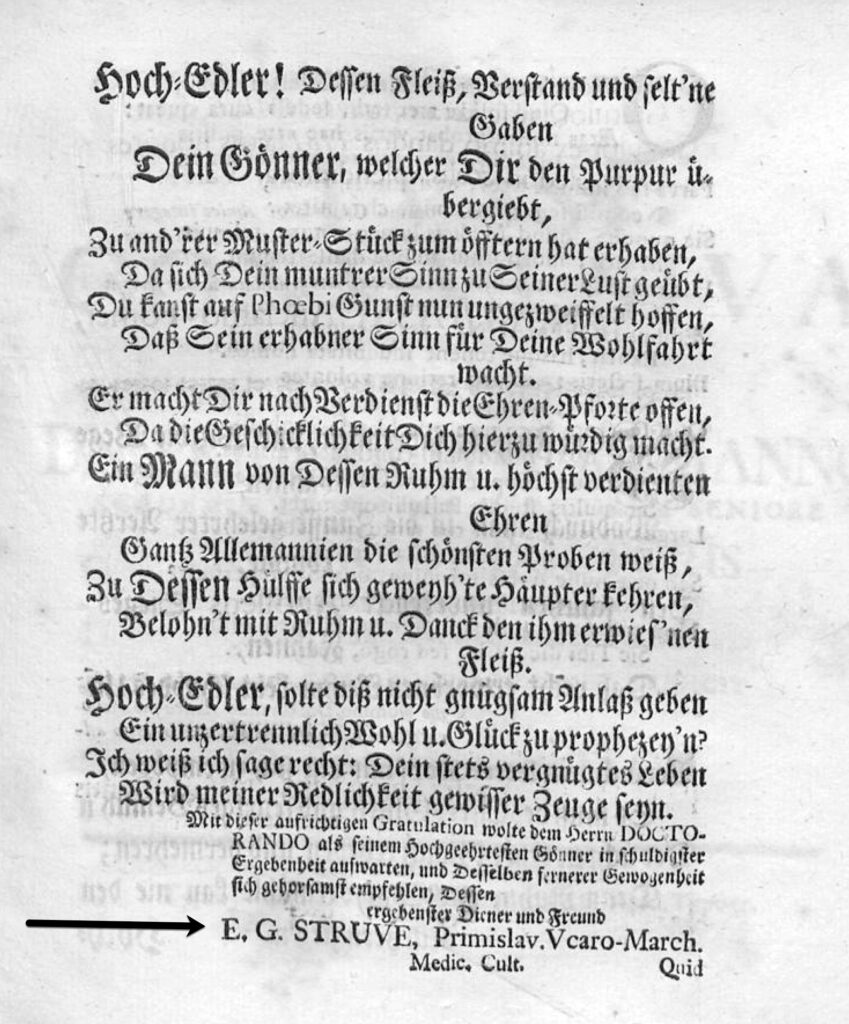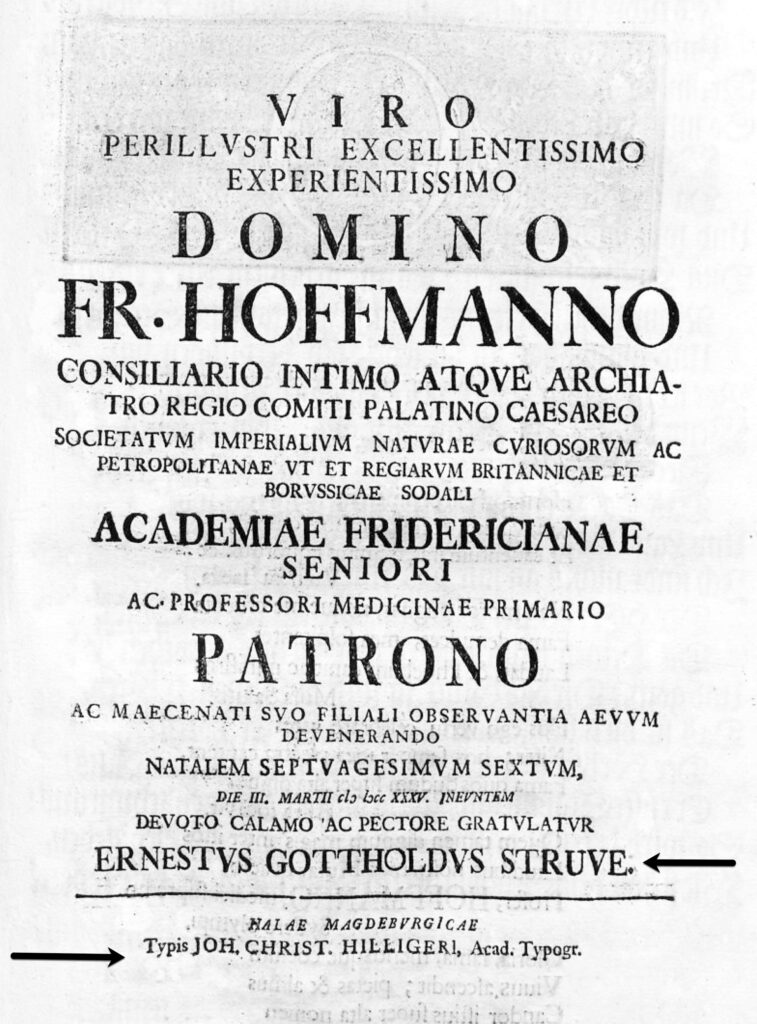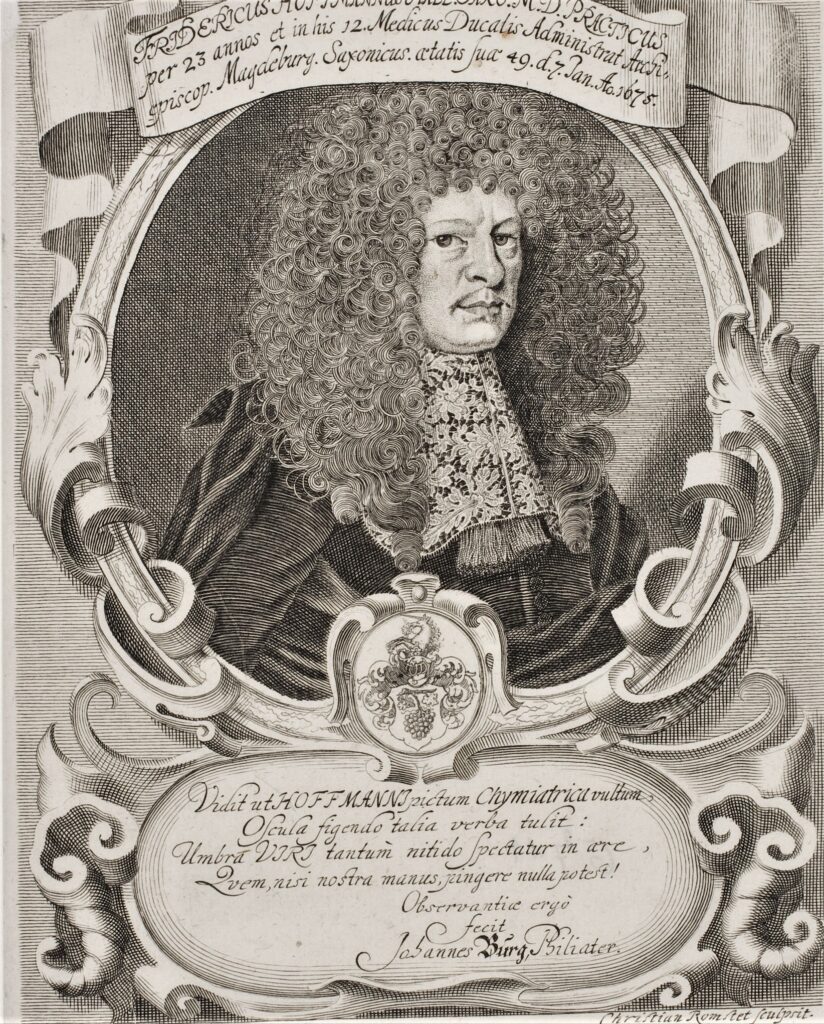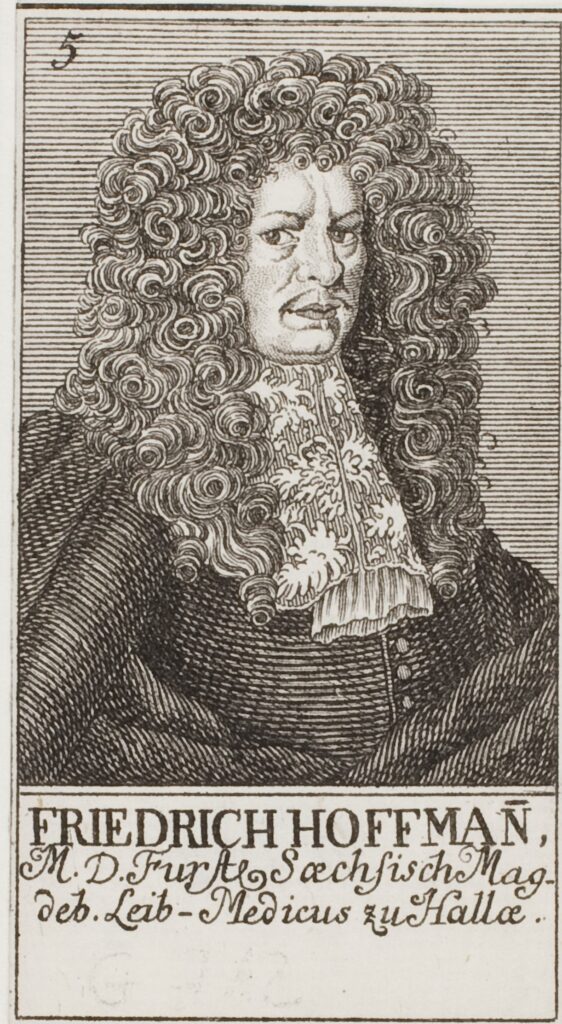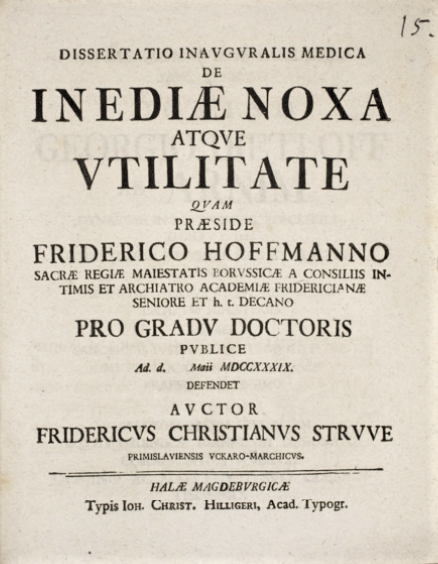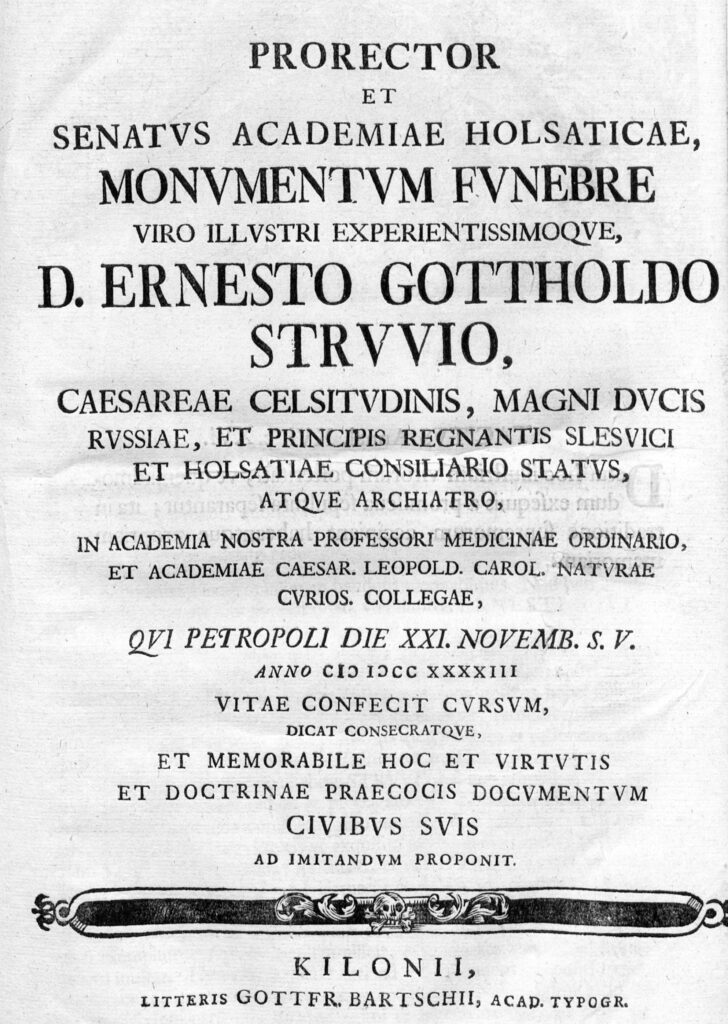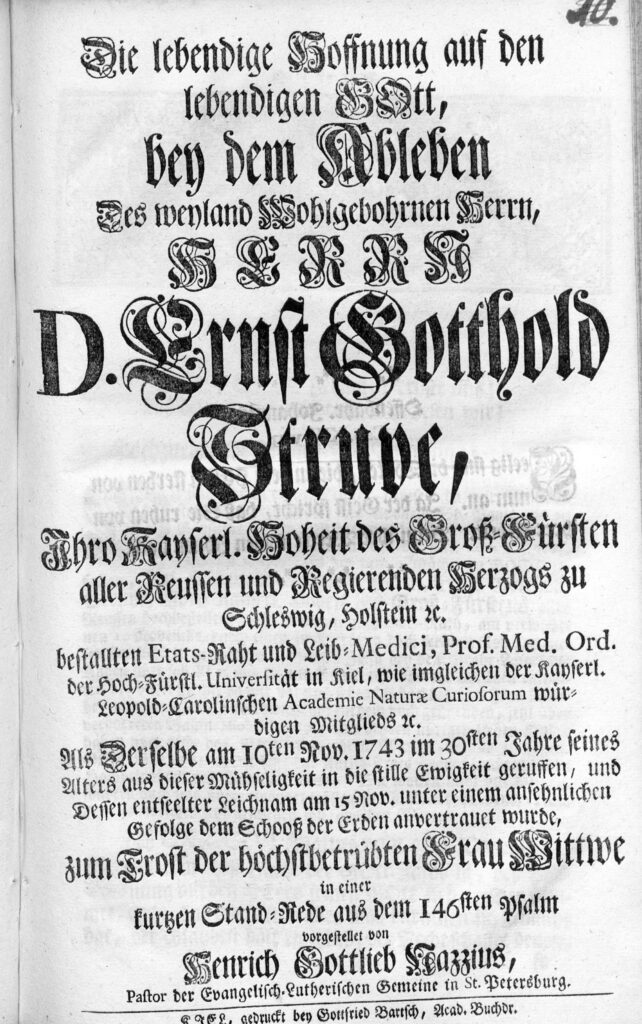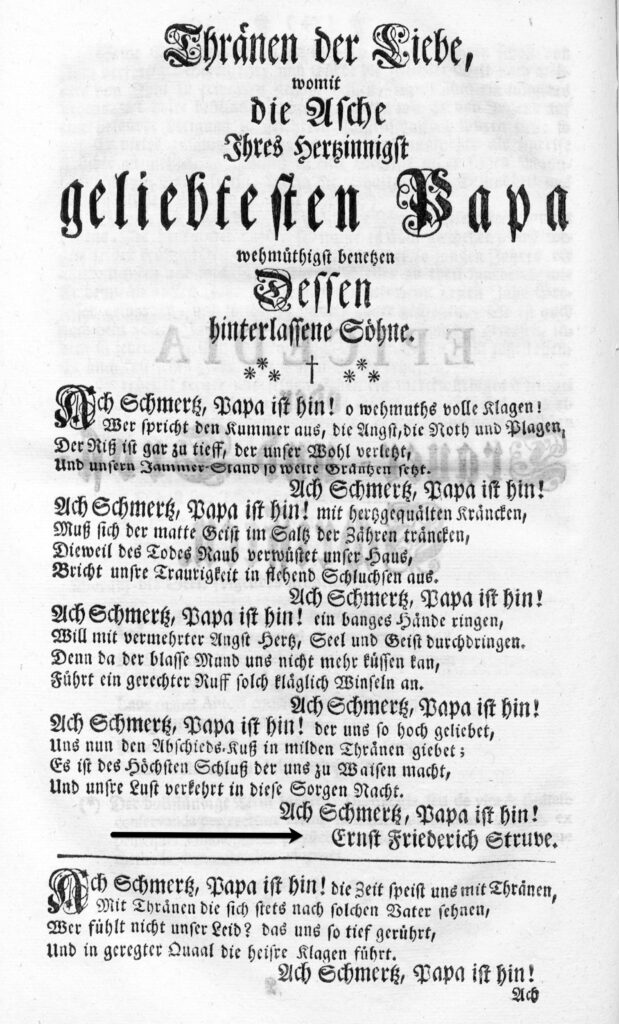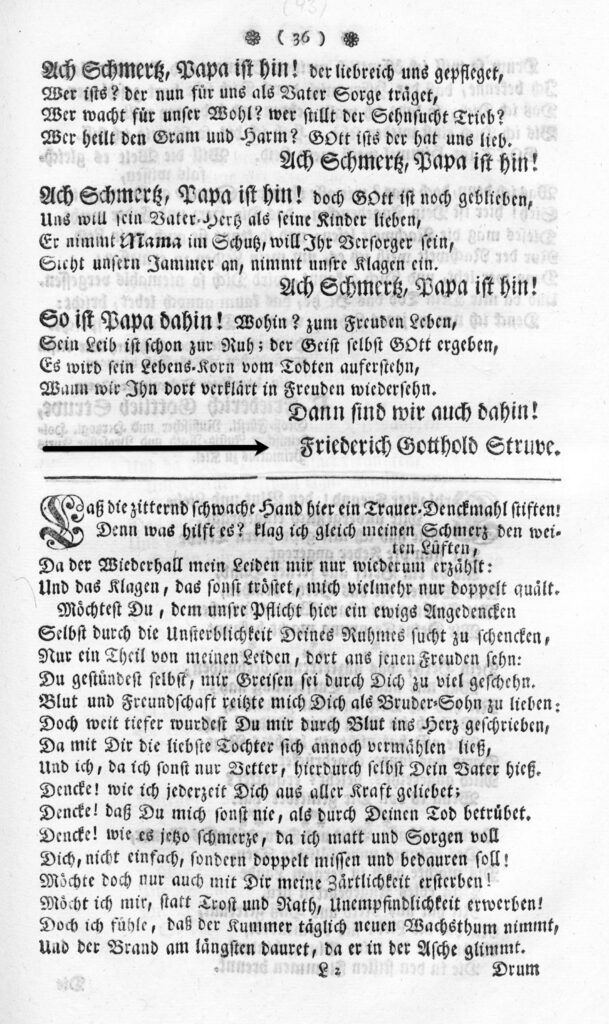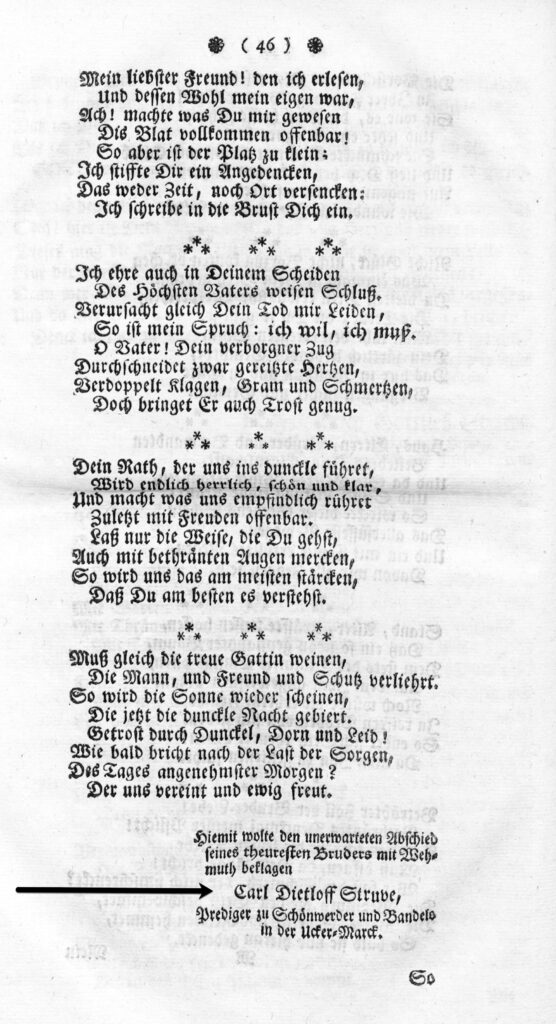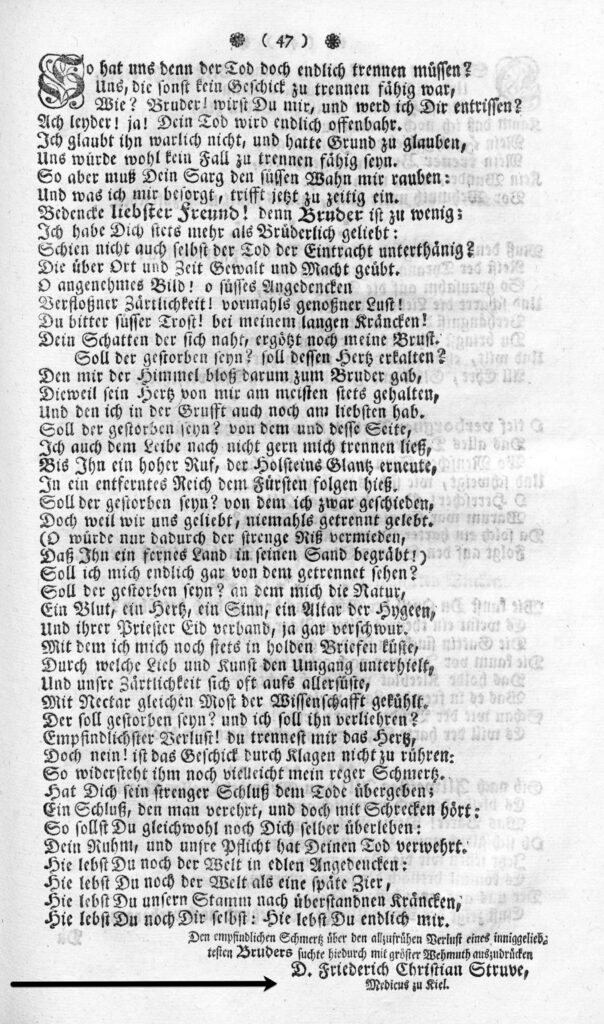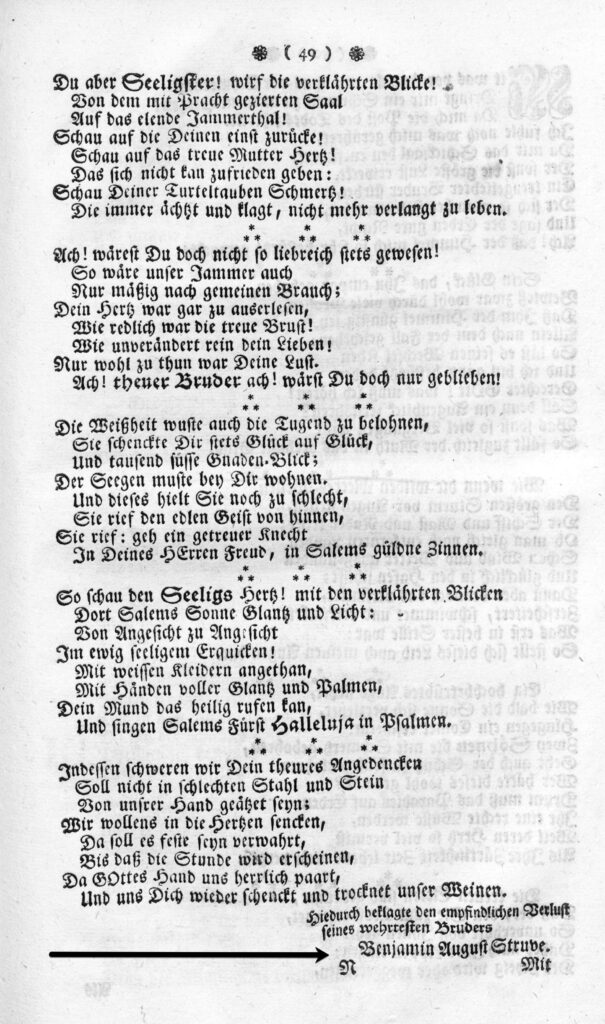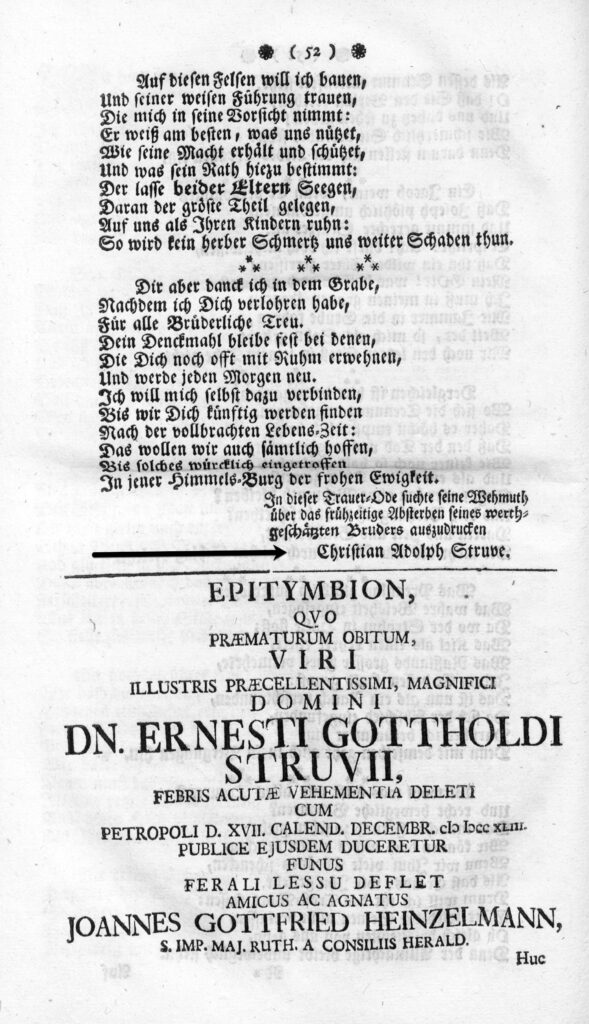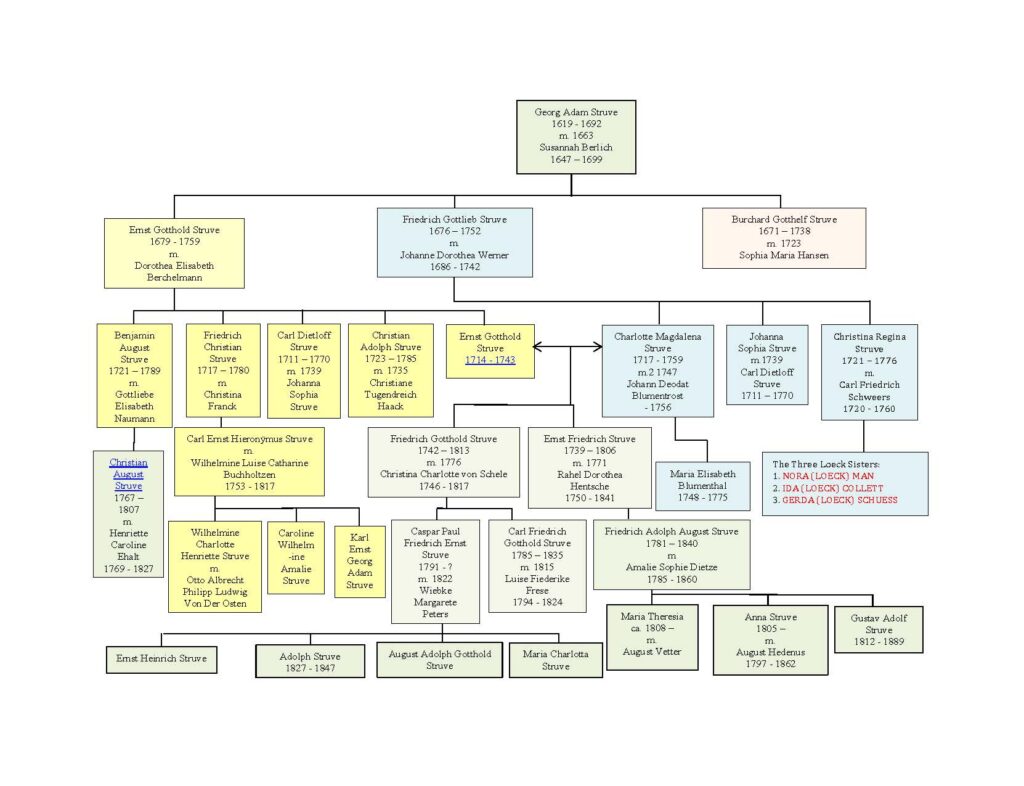Ernst Gotthold Struve was born on 11 April 1714 and died on 21 November 1743 in St. Petersburg, Russia. He was the son of the Ernst Gotthold Struve and the grandson of Georg Adam Struve. His brothers were: Friedrich Christian; Benjamin August; Christian Adolph Struve; and Karl Dietloff. He predeceased his father, of the same name, who died in 1759. He married his cousin Charlotte Magdalena Struve, the daughter of Friedrich Gottlieb and Johanne Dorothea (Werner) Struve. She was born on 02 June, 1717 at Jena and died on 17 August 1759, aged 42, at Narva, Ida-Viru County, Estonia. They had the following children:
- Ernst Friedrich Struve (1739 – 1806). He married Rahel Dorothea Hentsch (1749 – 1847). Their son was Friedrich Adolph Struve
- Carl Ditlef August Struve
- Friedrich Gotthold Struve
- Charlotte Amalie Struve (1743 – 1743)
- Elisabeth Caroline Struve
After Ernst Gotthold died, his widow, Charlotte Magdalena Struve, married Johann Deodat Blumentrost (Russian: Иван Лавреньевич Блюментрост, also Known as: “Deodat”, “Ivan Lavrentjewitsch”, “Iwan Bogdanowitsch”). He was born in 1676 in Moscow and died on 11 March, 1756 (79-80) at Saint Petersburg. A page devoted to the Blumentrost family can be found HERE.
Ernst Gotthold Struve is said to have performed extraordinarily well in his early childhood, having gone through the schools of his hometown and attended the Latin School in Glaucha and Halle at a very early age. In 1731 he went to the University of Halle, attended the lectures at the Faculty of Philosophy with Siegmund Jakob Baumgarten. He found accommodation in the house of Johann Juncker. Early on he dealt with a study of medicine, including the lectures of Johann Friedrich Cassebohm, Heinrich Bass and Johann Heinrich Schulze and attended the lectures on natural science and mathematics by Johann Joachim Lange. Soon he moved into the house of Hoffmann, with whom he would later correspond. As a poet, he had acquired such fame in Halle that he was admitted in 1733 as a member of the German Society of Speakers.
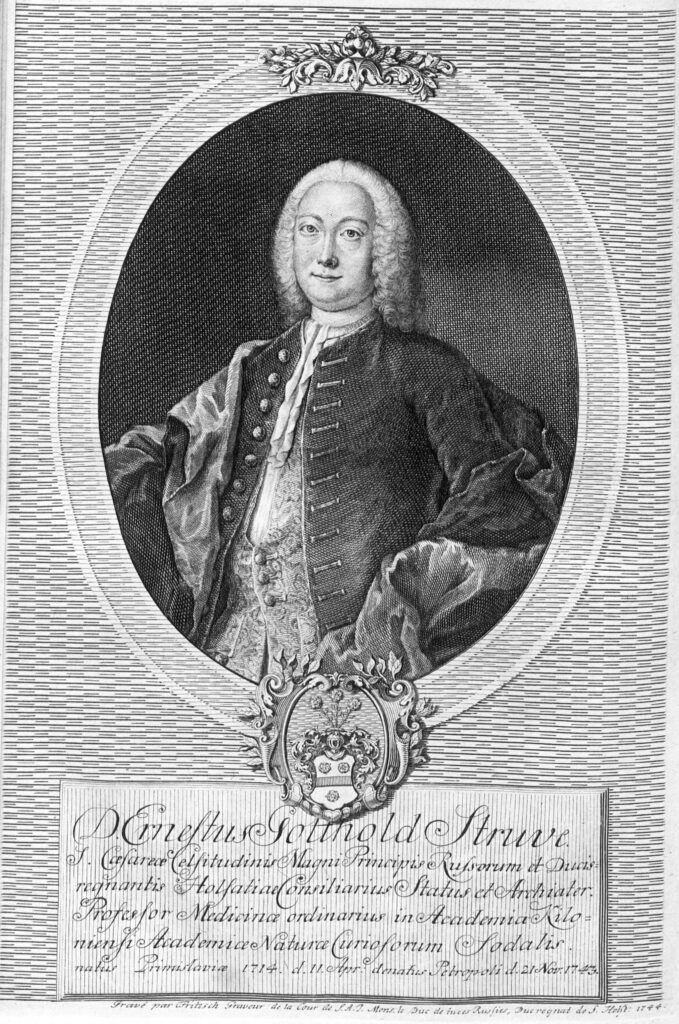
When Elizabeth Petrovna became Empress of Russia in 1741 she asked her nephew Karl Peter Ulrich von Schleswig-Holstein-Gottorf, the only child of Charles Frederick, Duke of Holstein-Gottorp and Anna Petrovna (the elder surviving daughter of Tsar Peter the Great), to join her in Russia to line him up as her heir, and Ernst Gotthold was asked by the Grand Duke to go with him which he did.
Ernst’s medical career was launched with his 1735 thesis: Dissertatio Inavgvralis Medica De Convalescentiae Statv Eivs Impedimentis Et Praesidiis …. It included contributions by his brothers Carl Dietloff Struve, Friedrich Christian Struve, and his uncle Burchard Gotthelf Struve and was published by Christian Hilliger.
He often co-authored medical works with the much older Friedrich Hoffmann (1660 – 1742).
Ernst Gotthold contributed to Hoffmann’s Dissertatio Inavgvralis Medica De Inediæ Noxa Atqve Vtilitate …
Another co-authored work was: Conspectvs Dissertationvm Librorvm Omnivmqve Scriptorvm Qvae Ab Anno where Ernst’s contribution is indicated by EGS below Hoffmann:
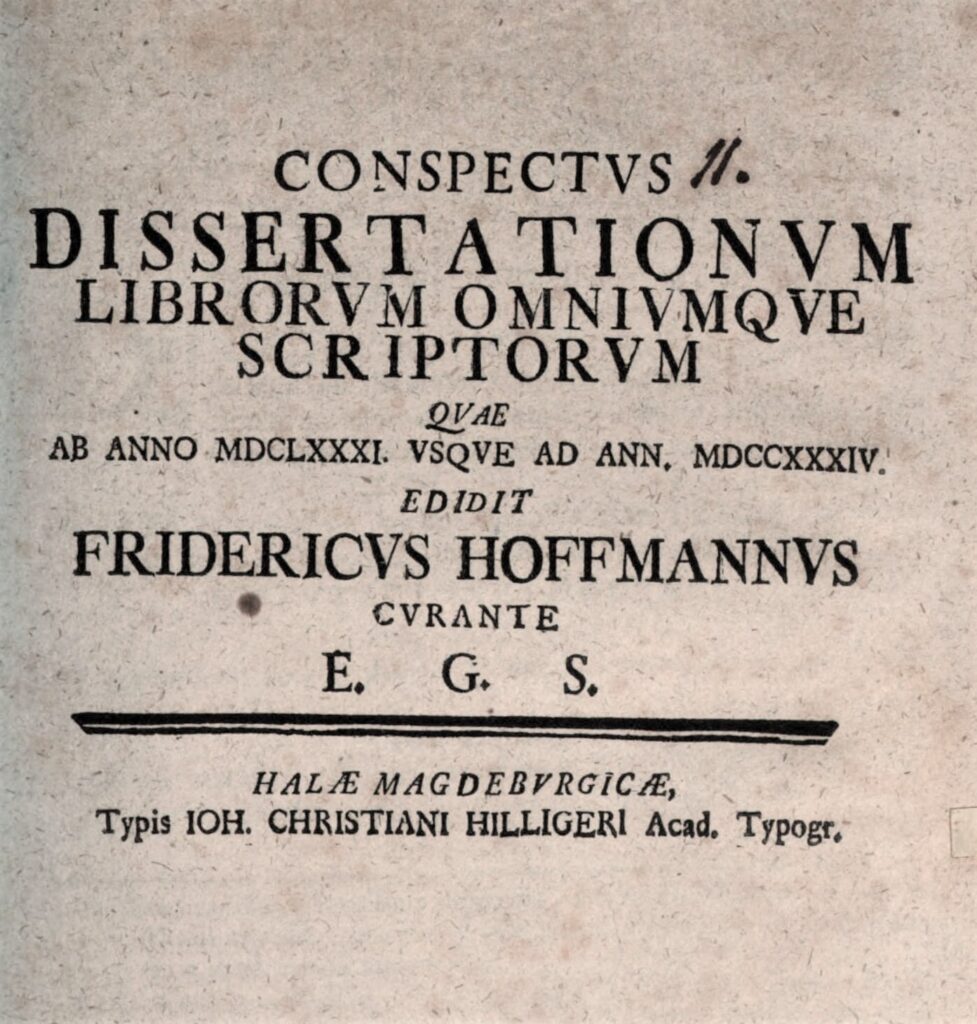
On the death of Ernst Gotthold (Jnr.) in 1743 at St. Petersburg, Russia, a funeral book was issued Prorector et Senatvs Academiae Holsaticae, monvmentvm fvnebre … D. Ernesto Gottholdo Strvvio … qvi petropoli die XXI. Novemb. S.V. Anno MDCCXXXXIII … dicat consecratqve … which contained contributions by several family members such as: Ernst Friedrich Struve, Friederich Gotthold Struve, Carl Dietloff Struve, Friederich Christian Struve, Benjamin August Struve, and Christian Adolph Struve.
